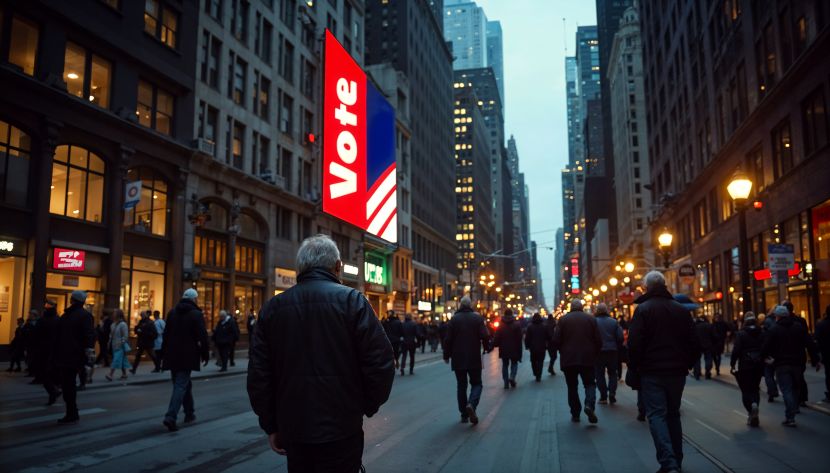London’s Massive Anti-Immigration Protest: Know What it Means for Tourism, Asylum Housing, and Local Economies
Over 100,000 participants attend a London anti-immigration protest as tensions rise in Britain over asylum seekers and government policies.
On Saturday, a large anti-immigration rally in London attracted over 100,000 participants, concluding more than a week of protests across the United Kingdom. This latest demonstration was organized by activist Tommy Robinson, a controversial figure with strong ties to far-right movements. The protests, fueled by increasing concerns over immigration policies, focused on the housing of asylum seekers in hotels across England and Wales. Tensions surged earlier this year following an alleged assault by an Ethiopian asylum seeker at a hotel in Essex, which ignited a series of protests throughout the country.
While some expressed their concerns about the government’s handling of immigration, others countered with their own demonstrations advocating against far-right rhetoric. As unrest continues to rise, the British government has announced plans to phase out the use of hotels for accommodating asylum seekers, signaling a shift in immigration management strategies.
Growing Unrest and Anti-Immigration Sentiment in Britain
Britain has witnessed escalating protests in recent months as concerns over immigration and the housing of asylum seekers have dominated public discourse. The situation came to a head when it was revealed that over 30,000 asylum seekers were being housed in approximately 200 hotels across England and Wales by the end of March. The influx of asylum seekers into these accommodations has sparked heated debates, with critics questioning the government’s capacity to manage the growing numbers and the use of temporary housing solutions such as hotels.
Tensions reached new heights in July when an incident involving an Ethiopian asylum seeker staying at a hotel in Essex led to charges of sexual assault and inappropriate behavior toward a young girl. The case sparked protests, initially around the hotel and later spreading to other areas housing asylum seekers. Many protesters voiced their anger, claiming that the growing number of asylum seekers is putting a strain on public resources and safety.
The London Rally: A Show of Strength for Anti-Immigration Activists
The rally in London, led by Tommy Robinson, a former leader of the far-right English Defence League (EDL), was one of the largest of its kind in recent times. Robinson has become a symbol for those who oppose what they view as unchecked immigration and its impact on British society. Demonstrators, many of whom were waving English and Union flags, carried placards with messages calling for stronger immigration controls and an end to asylum seeker accommodations in hotels. The rally attracted tens of thousands of people, with the police estimating the crowd to be over 100,000 strong.
At the event, the protestors expressed their concerns about the perceived threat posed by “mass uncontrolled migration” to the UK. As the rally continued, tensions mounted, and the situation grew violent in some areas, with clashes between protesters and police. In total, 26 officers were reported injured, and 25 individuals were arrested for their involvement in the disturbances. Despite the violence, the protest remained a significant display of discontent among a substantial portion of the British population.
A Counter-Protest and the Growing Divide
In response to the anti-immigration rally, another demonstration took place in London. Thousands of counter-protesters marched under slogans such as “Stop the far right,” calling for unity and rejecting far-right ideologies. The counter-demonstration underscored the deep divide in public opinion regarding immigration and the future of Britain’s asylum policies.
The growing opposition to far-right movements has become increasingly vocal in the UK, with several cities witnessing their own marches and protests. The government’s inability to effectively address the complex issues surrounding immigration has only deepened the polarization of opinions. For many, the question is not just about asylum seekers but about how Britain should define its national identity in a globalized world.
Government’s Response: New Policies and Measures
In response to mounting pressure, the British government has pledged to address the concerns raised by the protesters. Officials have outlined plans to gradually phase out the use of hotels for housing asylum seekers, with an emphasis on finding alternative accommodations. The government has also committed to exploring more sustainable solutions to managing the growing number of asylum seekers, including potential changes to the immigration system to prioritize security and efficiency.
While these changes signal a shift in policy, critics argue that they may not go far enough in addressing the root causes of public discontent. Many call for a more comprehensive overhaul of Britain’s immigration laws, while others argue for greater support for local communities impacted by the influx of asylum seekers.
The Travel and Tourism Angle: Potential Impact on Local Economies
The ongoing protests and immigration debates also have implications for the tourism and travel industry in Britain. Hotels that have been used to house asylum seekers have faced pressure from locals and businesses concerned about the impact on local economies. Some communities, especially in tourist-heavy regions, have voiced concerns about the effect on tourism, with many businesses claiming that the use of hotels for asylum housing is deterring potential visitors.
In some areas, the controversy surrounding immigration has led to cancellations of bookings and a decline in foot traffic to local attractions. Tourism authorities have stressed the need for a balance between accommodating those in need and maintaining the integrity of local economies, which depend heavily on tourism.
Shifting Public Opinion and Policy Changes Ahead
The situation in the UK continues to evolve as both sides of the immigration debate press for change. Whether the protests will lead to lasting changes in the government’s immigration policies remains uncertain, but it is clear that the issue will remain a focal point in the coming months. As tensions rise and protests continue, it is likely that public discourse around immigration will intensify, forcing policymakers to address the growing divide over Britain’s future.
The post London’s Massive Anti-Immigration Protest: Know What it Means for Tourism, Asylum Housing, and Local Economies appeared first on Travel and Tour World


